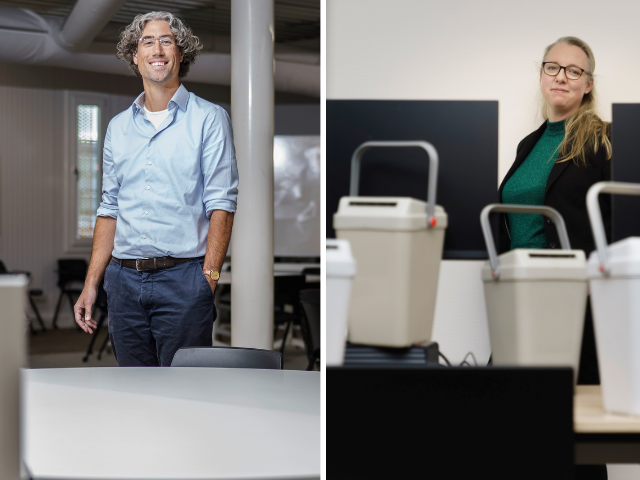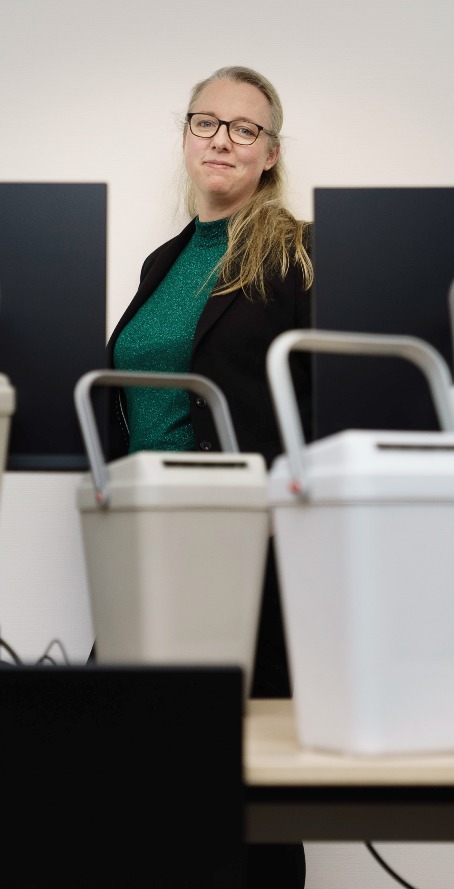Enhancing data-driven decision-making for Dutch charity organizations

Charities have a vital role in addressing societal challenges, but little is known about what drives people to donate and the influence marketing strategies can have. With their collective research projects, associate professors Marijke Leliveld and Hans Risselada try to fill this knowledge gap. They received one of the six acceleration grants from FEB’s Research Institute for a new project with charity consulting firm Data Inside, which aims to create a knowledge exchange platform for charity organizations and enable those organizations to make data-driven decisions.
You have done research on this subject before, what is the importance?
“Charities are vital in addressing societal challenges, by supporting those in need and enhancing community well-being. The charity sector is a significant industry, with donations reaching around $319 billion in the U.S. in 2022 and €2.2 billion in the Netherlands. Yet, despite its importance, there is limited systematic research on what drives people to donate, particularly on the influence of marketing strategies and how their effects vary over time, across individuals, and depending on the cause. Our planned collaboration with charity consulting firm Data Inside and its clients aligns with current research in this field, including our own work. For example, in one of our studies, published in 2017, we examined how donation decisions evolve over time. In this study, we analyzed unique data with nearly 300,000 real donation decisions made by more than 20,000 individuals for a period of 10 months. We found that people tend to act out of moral consistency rather than moral compensation, meaning they don’t tend to change their decision whether to donate – to compensate for earlier donation decisions - very often. This research highlighted not only the theoretical and practical implications, but also the value of integrating psychological insights into charitable giving with advanced statistical methods, which we will also do in the current project.”
Can you describe the new project?
“Our new project involves creating a knowledge exchange network in collaboration with Data Inside and its clients, which includes a range of charities. Building on our previous and ongoing research on charitable giving, this network will allow us to share insights and expertise. Unlike for-profit organizations, charities face strict guidelines on how they can allocate donations, which makes optimizing their resources critical. As a result, each charity can employ very few data-analytics experts, only one or two, and they have limited time to stay on par with the newest data techniques, let alone the latest psychological research. The grant will help us establish a structured knowledge platform to support this exchange and enhance the impact of charitable efforts.”
What will the process look like?
“The project’s primary goal is to establish a knowledge exchange platform between us, Data Inside, and its clients. This platform will offer charities evidence-based advice and create opportunities to develop new research project ideas, including field experiments. The project was officially launched at the “Vakdag Fondsenwerving” in September 2024, where Marijke pitched our project to a broad audience from the charitable sector, including many clients of Data Inside. This served as our kickoff event, helping to introduce the project and gather interest. Next, we’ll refine research ideas based on feedback and work with Data Inside and its clients to develop concrete project proposals. The grant will specifically support this idea development phase, but it does not cover the actual execution of these projects, which will require separate funding. Finally, we’ll aim to define and prepare a well-scoped initial research project, laying the groundwork for future collaboration. Looking ahead, we plan to provide workshops to Data Inside’s team, equipping them with tools and insights for future work.”
What type of issues came up at the “Vakdag Fondsenwerving” which you plan to incorporate into this project?
“The panel discussion was meant to hear about these fundraisers’ experiences with data-driven fundraising so far. Some are already quite far but still have questions. For example, a charity was contemplating creating so-called batches for gold, silver or bronze donors based on how long someone has been a donor. That is an interesting idea, and within marketing research on loyalty programs, we know quite a lot about how these types of programs work. But for charities, that is much less clear.
What was also interesting, is that though these fundraisers really try hard to work with their data, they often make decisions on the continuation of a certain campaign based only on the numbers, but without a clear understanding of why a certain campaign does not work. This is what we can bring to fundraisers: either via sharing what is already known about that from previous research or by studying it ourselves.”
What do you hope to achieve with your project?
“We aim to establish a long-term partnership with Data Inside and its clients to collaborate on joint research projects and share valuable insights. This collaboration would not only benefit the charities and enhance their impact on society but also enrich our research in the long run. Through our research, we enable charities to use their data more effectively and make better data-driven decisions. By providing charities with insights into how, why and when people choose to donate, these charities can be more effective, which in the end benefits the causes they serve.”

Hans Risselada is an associate professor at the Department of Marketing. His main research interest is developing quantitative marketing models to increase our understanding of consumer decision making. He is particularly interested in understanding social interactions and social influence and how these phenomena support or prevent societal change.

Marijke Leliveld is an associate professor at the Department of Marketing. She studies consumer ethics. Specifically, she studies when and why people spend their money on prosocial matters, like charitable giving, but also sustainable products. Or how people perceive organizations, non-profit as well as for-profit, who engage in prosocial activities.
Acceleration Grants
In early 2024, FEB’s Research Institute launched a new initiative to support research proposals with potential for impact. These acceleration grants focus on researchers with an innovative, high-impact research idea/ project/ line that has not yet realized its impact. Each acceleration grant should be tailored to the specific goals and objectives of the future impactful activities and have a well thought-out budget and clear project plan.
Further reading
Kang, I. H., Leliveld, M. C., & Ferraro, R. (2022). The impact of facial emotional expression on the effectiveness of charitable advertisements: the role of sympathy and manipulative intent. Journal of Behavioral Decision Making, 35(5). https://doi.org/10.1002/bdm.2281
Leliveld, M. C., & Risselada, H. (2017). Dynamics in charity donation decisions: Insights from a large longitudinal data set. Science Advances, 3(9). https://doi.org/10.1126/sciadv.1700077

